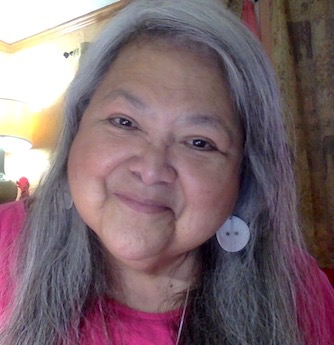
Event Date
Out of concern for the health and safety of our attendees, presenters and staff in light of the COVID-19 health crisis, the 2020 Institute will be a virtual event.
Hosted by the University of California, Davis, the 2020 National Tribal TANF Institute brings people together from across the country for a unique educational experience. Now in its 15th year, the theme of the 2020 Institute is “Our Families, Our Future: Connecting Communities of Care.”
To honor this year’s theme, the 2020 Institute will provide added focus on collaboration with Youth and Family services, as well as enhanced mental health and well-being for Native families. Collaborating with the various programs that serve our TANF families is critical to achieving successful outcomes—whether it’s linking families to Mental Health, Child Welfare or Adult Protective services, as well as connecting to services available via state, county and local agencies. Making those connections work as smoothly as possible is an essential first step; then comes the application of learned skills and strategies that help families achieve self-sufficiency and overall wellness.
What to Expect at the 2020 Institute
At this unique, interactive four-day event, participants will have opportunities to:
- Gain university-quality, culturally competent professional development skills
- Foster and encourage collaboration and interaction between tribal communities
- Learn best practices in service delivery to those in need in our communities
- Celebrate the diversity of culture and experience of institute participants and their sovereign nations
Who Should Attend
Directors, program managers, supervisors, tribal council members, community partners, case managers, employment counselors, training coordinators, intake specialists, wellness and prevention staff and case assistants all find opportunities for professional development and organizational growth.
Keynote Presenters
 Dr. Inés Hernandez-Avila, Professor, Native American Studies, UC Davis, is Nimipu/Nez Perce, of Chief Joseph's band, enrolled on the Colville Reservation, Washington, on her mother's side, and Tejana on her father's side. A scholar, poet and visual artist, she is a Ford Foundation Fellow at the doctoral and postdoctoral levels, and a member of the Society of Senior Ford Fellows. She is one of the six founders of the international Native American and Indigenous Studies Association (NAISA). From 2013-2016, she was co-director of the three-year UC Davis Social Justice Initiative, funded by the Andrew Mellon Foundation. She received the UC Davis Academic Senate Distinguished Teaching Award and the Outstanding Mentor Award from the UC Davis Consortium for Women and Research. Her work focuses on the relationships between personal and collective autonomy, creativity, spirituality and social justice. She is particularly focused on how Indigenous wisdom traditions can guide Native American/Indigenous peoples on the road to healing and well-being.
Dr. Inés Hernandez-Avila, Professor, Native American Studies, UC Davis, is Nimipu/Nez Perce, of Chief Joseph's band, enrolled on the Colville Reservation, Washington, on her mother's side, and Tejana on her father's side. A scholar, poet and visual artist, she is a Ford Foundation Fellow at the doctoral and postdoctoral levels, and a member of the Society of Senior Ford Fellows. She is one of the six founders of the international Native American and Indigenous Studies Association (NAISA). From 2013-2016, she was co-director of the three-year UC Davis Social Justice Initiative, funded by the Andrew Mellon Foundation. She received the UC Davis Academic Senate Distinguished Teaching Award and the Outstanding Mentor Award from the UC Davis Consortium for Women and Research. Her work focuses on the relationships between personal and collective autonomy, creativity, spirituality and social justice. She is particularly focused on how Indigenous wisdom traditions can guide Native American/Indigenous peoples on the road to healing and well-being.
Beth Rose Middleton Manning, Professor and Chair, Dept. of Native American Studies; Yocha Dehe Endowed Chair in California Indian Studies, University of California, Davis. Beth Rose’s research centers on Native environmental policy and Native activism for site protection using conservation tools, and her broader research interests include intergenerational trauma and healing, rural environmental justice, Indigenous analysis of climate change, African and Indigenous intersections in the Americas, and qualitative GIS. She is committed to participatory research that contributes to social justice, and to increasing underrepresented voices in academia and policy. Beth Rose received her BA in Nature and Culture from UC Davis, and her Ph.D. in Environmental Science, Policy, and Management from UC Berkeley. She is the author of two books: Trust in the Land: New Directions in Tribal Conservation (University of Arizona Press 2011), which focuses on Native applications of conservation easements and land trust structures, and Upstream (University of Arizona Press, 2018), on the history of Indian allotment lands at the headwaters of the California State Water Project. She has published on Native economic development, political ecology and healing, Federal Indian law as environmental policy, using environmental laws for Indigenous rights, addressing challenges to cultural site protection, and Indigenous-led adaptations to climate change.
Institute Tracks
The 2020 National Tribal TANF Institute will offer workshops in four distinct tracks designed to help participants in various levels of experience and responsibility.
Track 1: 101 - Designed to introduce case managers to the nuts and bolts of the federal TANF program, including case management best practices and strategies to address common barriers to client success and long-term self-sufficiency.
Track 2: Advanced Case Management - Designed for the more experienced workers, looking to further their skills and abilities to provide solutions to specific challenges faced in communities they serve.
Track 3: Supervisory/Management - Designed to assists managers in developing strategies and skills to lead their teams to improved effectiveness and efficiency when working with their clients to self-sufficiency.
Track 4: Leadership - Designed to think about the dynamics of program management, discuss how to effectively implement new projects and processes, as well as document and show successes on new initiatives.
Agenda Schedule
View the Institute agenda.
Workshop Descriptions
Read about all of the workshops and their presenters.
Cultural Exchange Event
Please join us for the Cultural Exchange Event on Wednesday, Sept. 23, at 1:00 p.m. The event will be an opportunity for participants to share their unique cultural expressions that make their tribes special. We’ll see a variety of cultural elements, including traditional clothing, instruments, dance, song, stories, rituals and other artforms. All participants are invited to join in the audience! Anyone interested in presenting, please submit your interest to tribal@ucdavis.edu by Sept. 14.
Best Practices in Tribal TANF Programs
Attention, Leaders! Would you like to share an exciting initiative? There will be a workshop in the Leadership Track dedicated to best practices, titled Program Development Best Practices. Participants will have the opportunity to highlight innovative and effective strategies for instituting successful TANF programs. Participants will deliver 15-min presentations on a successful project and then host a Q&A session. To participate as a presenter, please complete an online submission form by August 31. Each submission should indicate which of the 4 Purposes of TANF the initiative addresses, a brief project mission statement, objectives, implementation strategy and results.
Enrollment Fee
The enrollment fee for the four-day virtual institute is only $200!
How to Enroll
To enroll online, complete the online enrollment form
To enroll by phone, please call our Student Services office at (800) 752-0881 during business hours: Monday-Friday, 8:30 a.m.-4:30 p.m. (PST)
